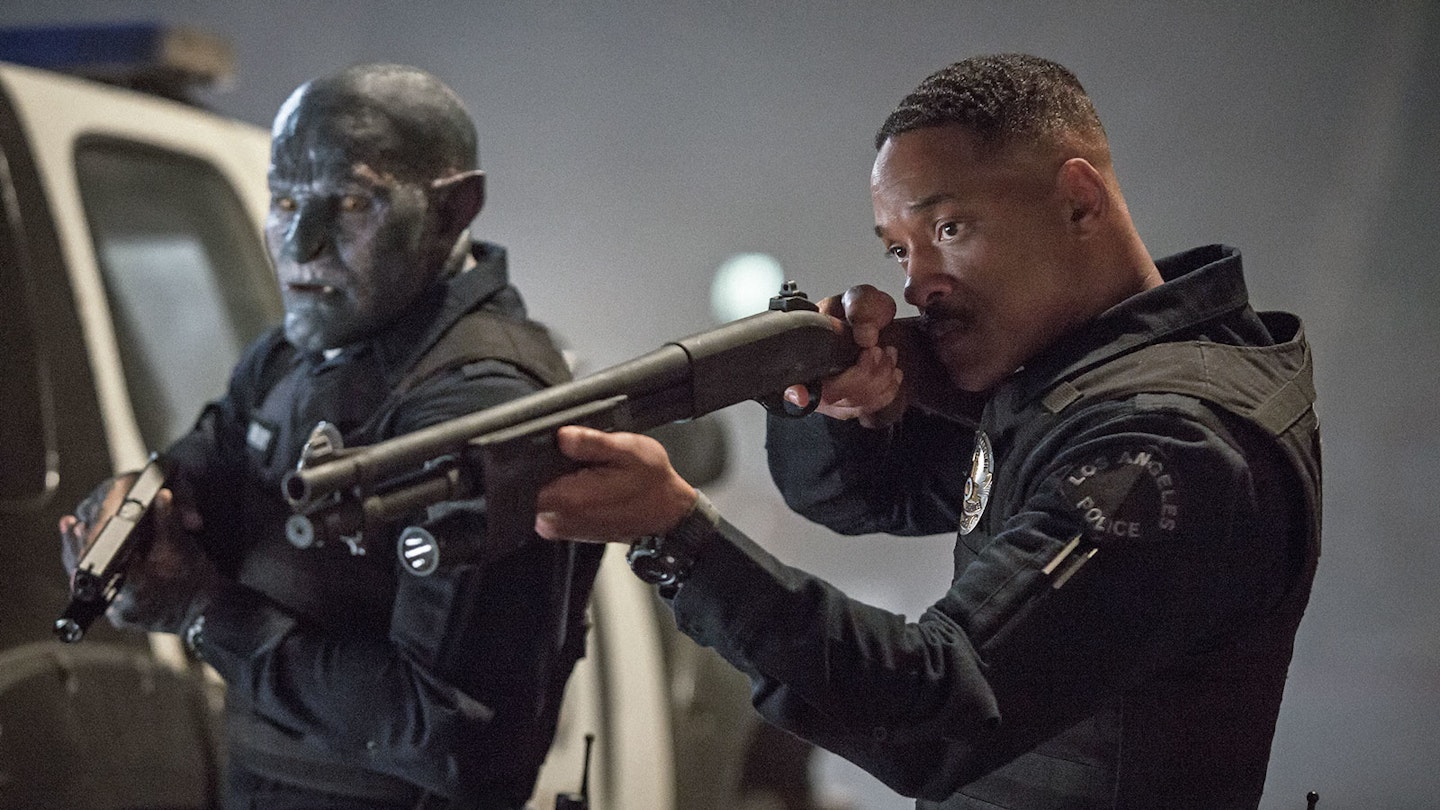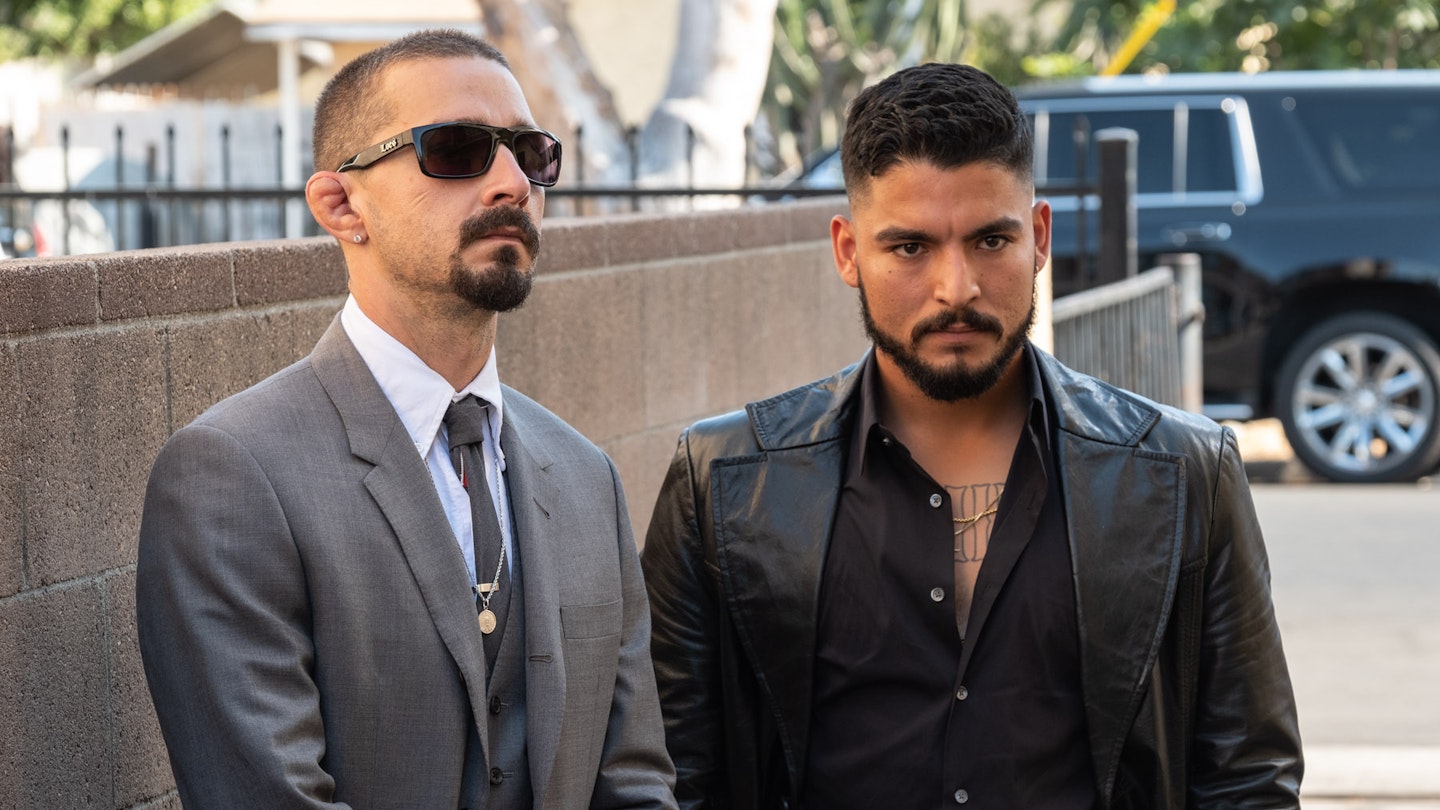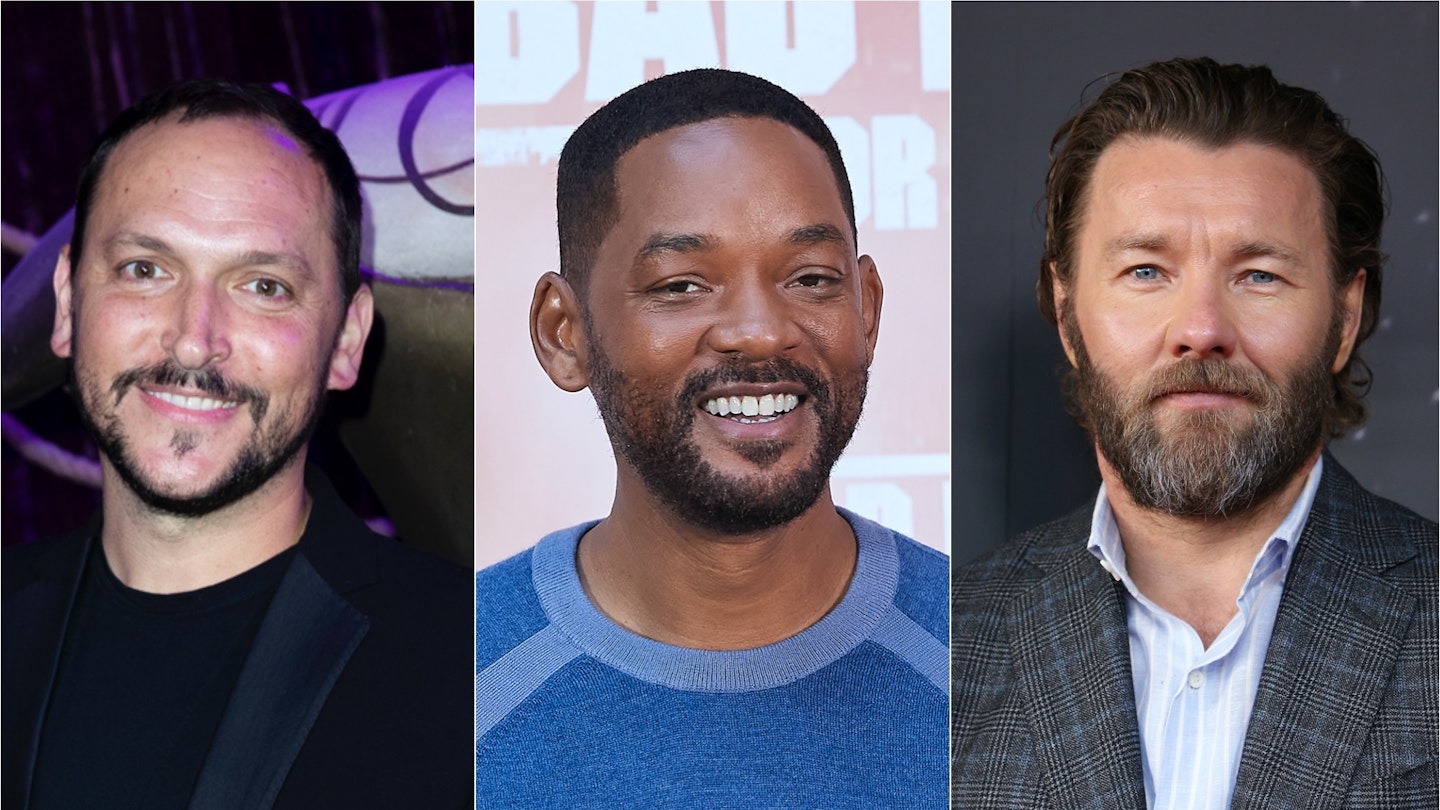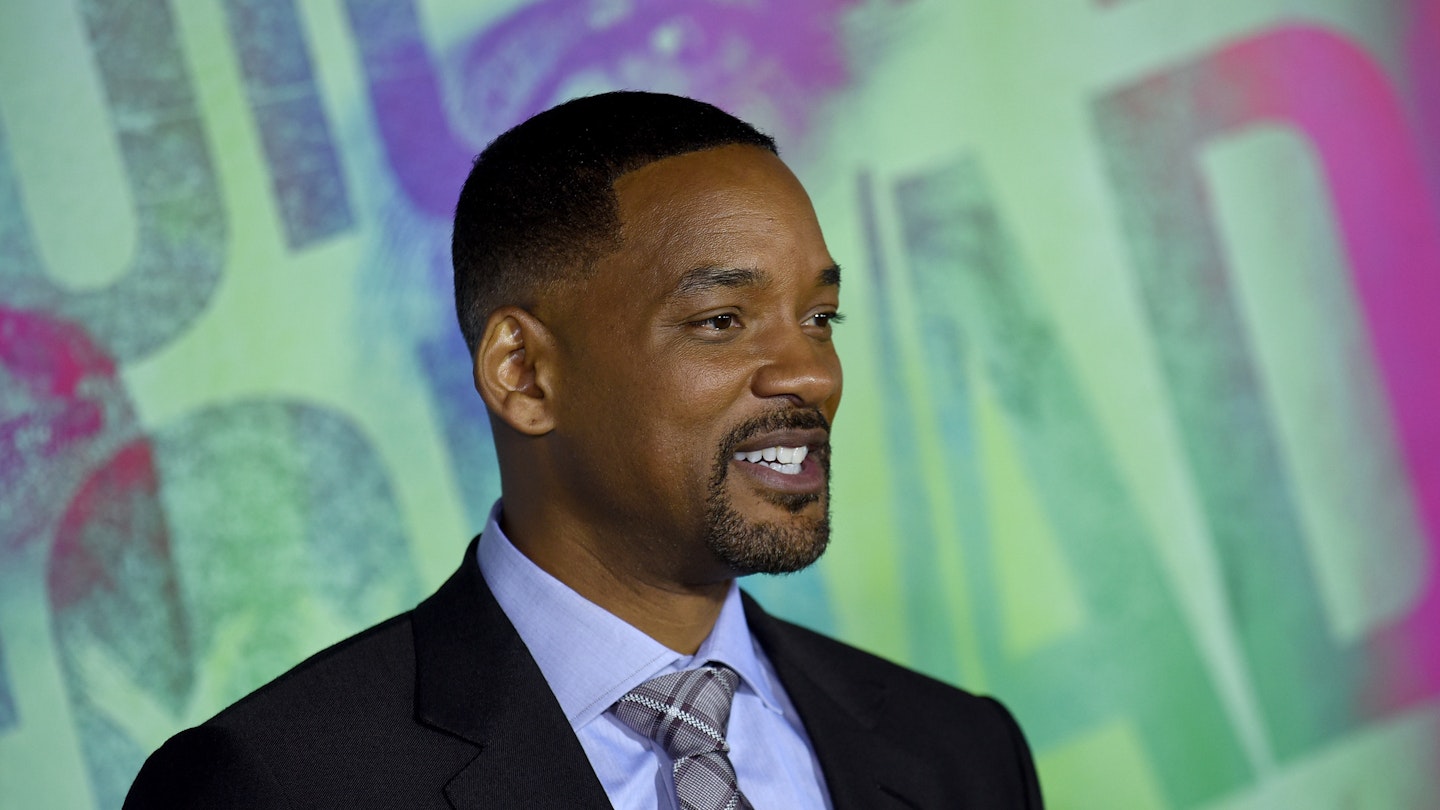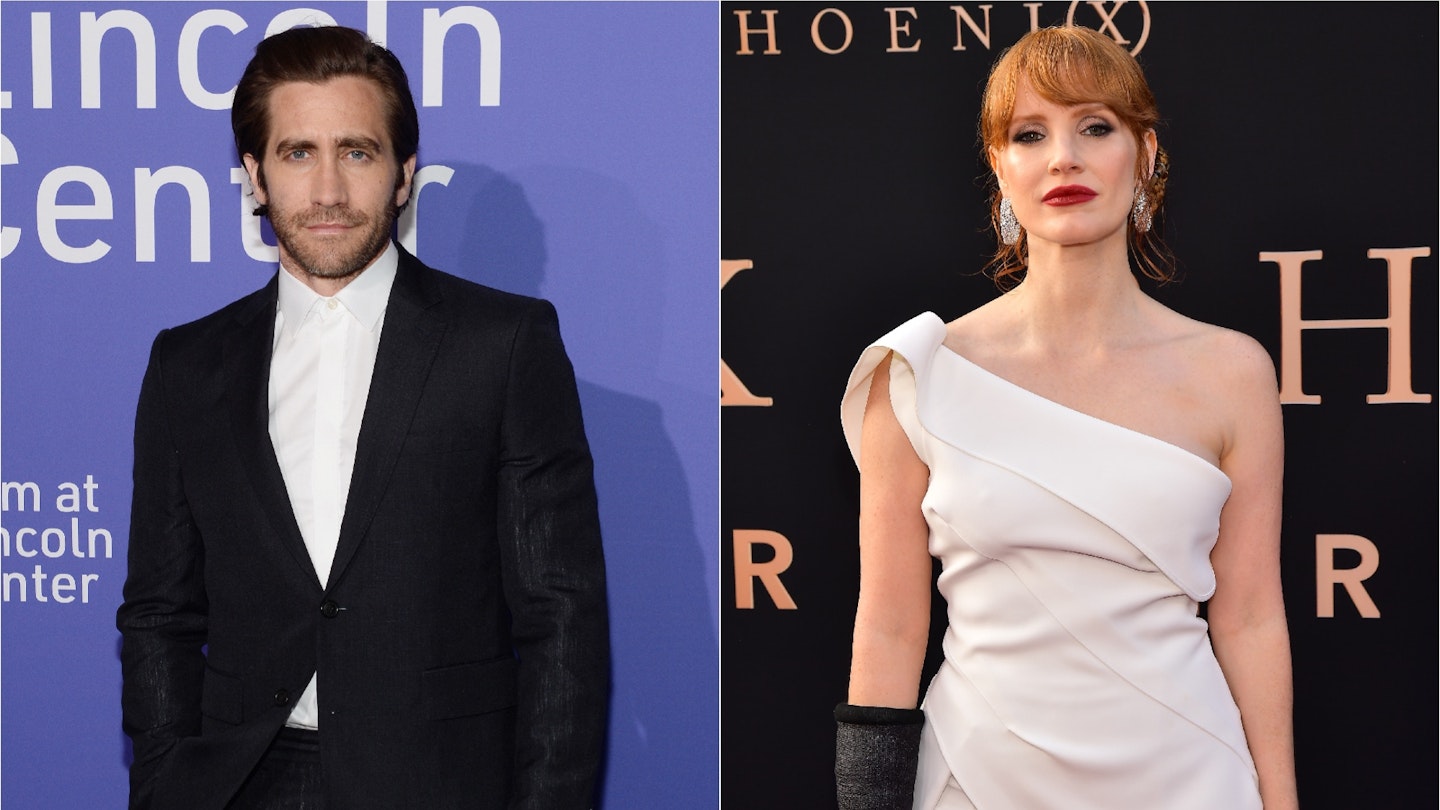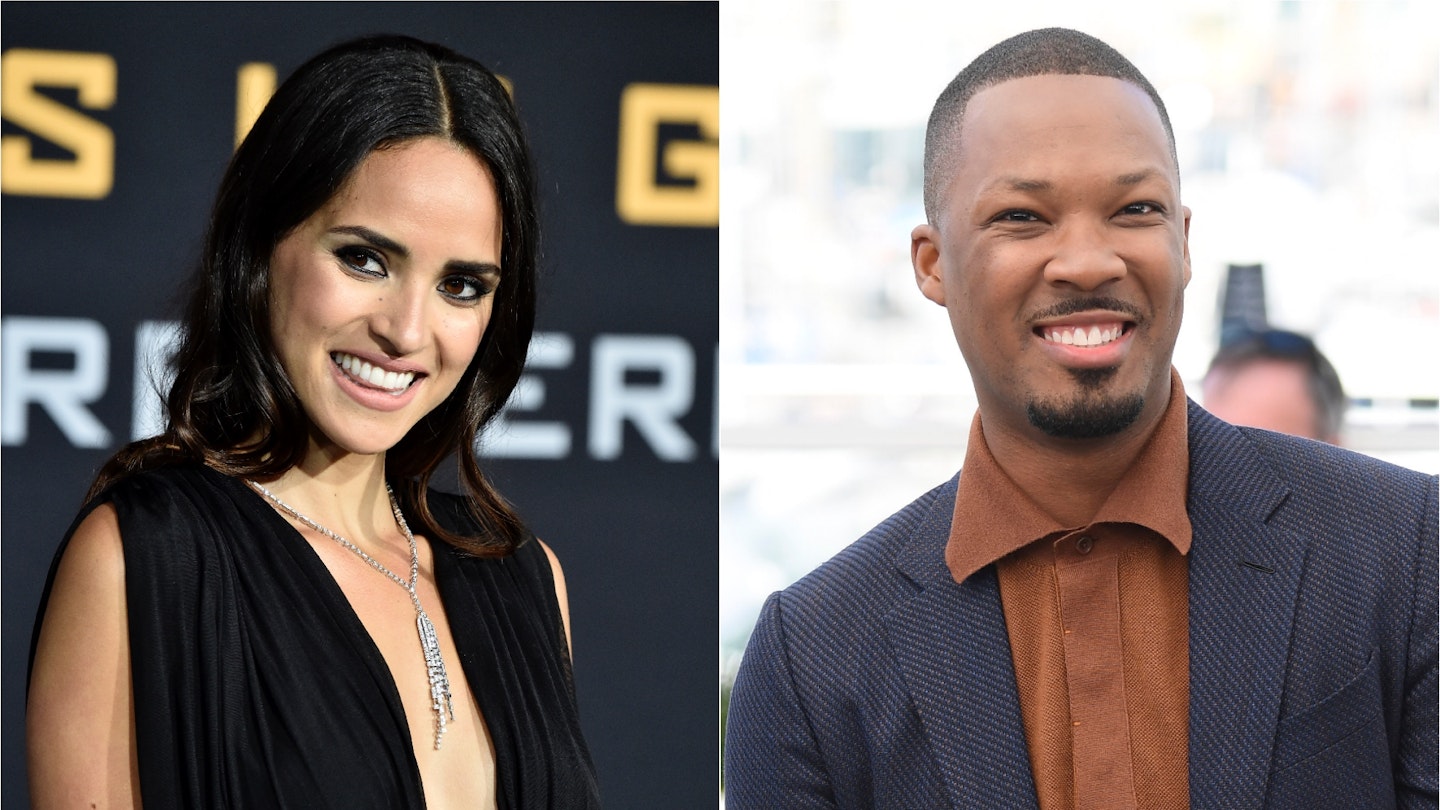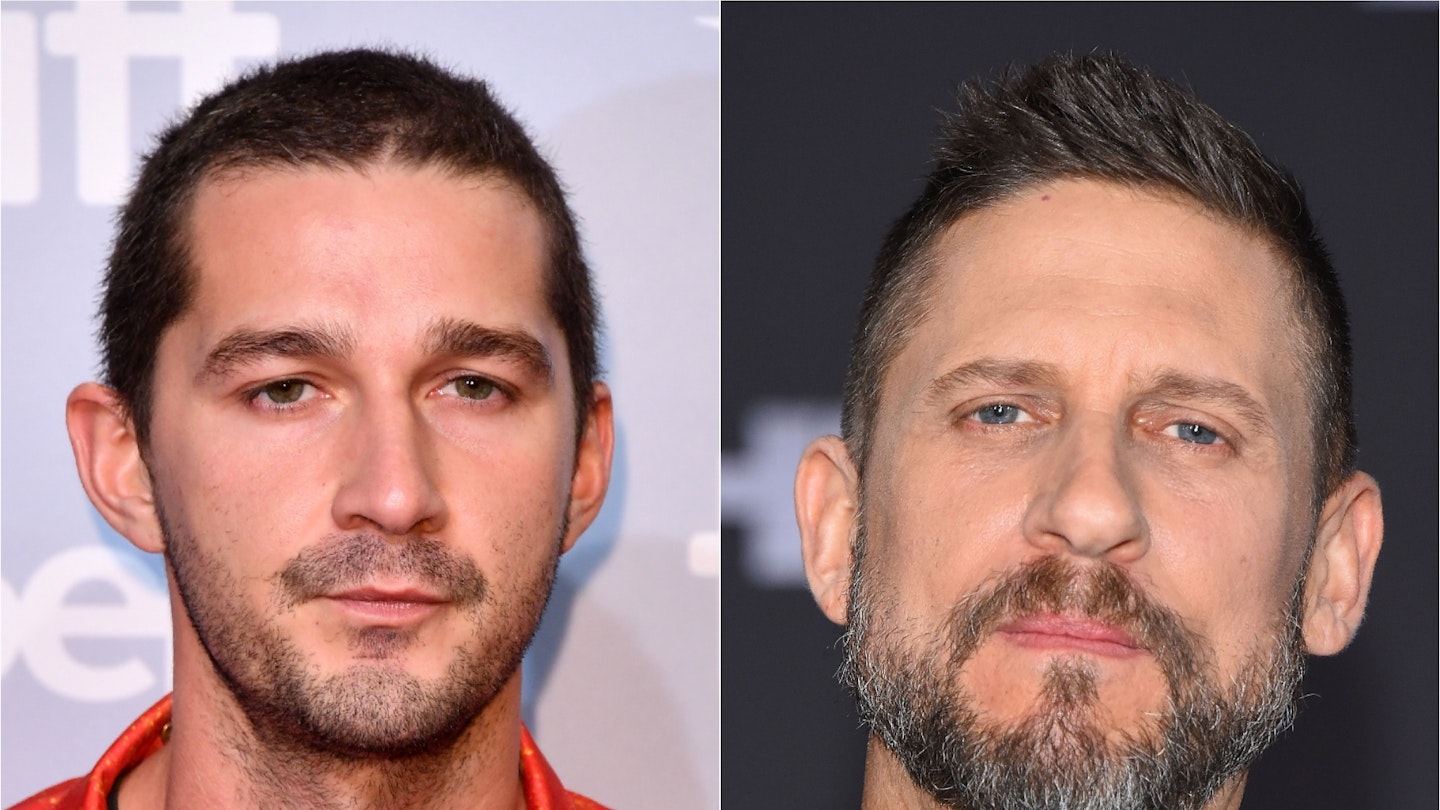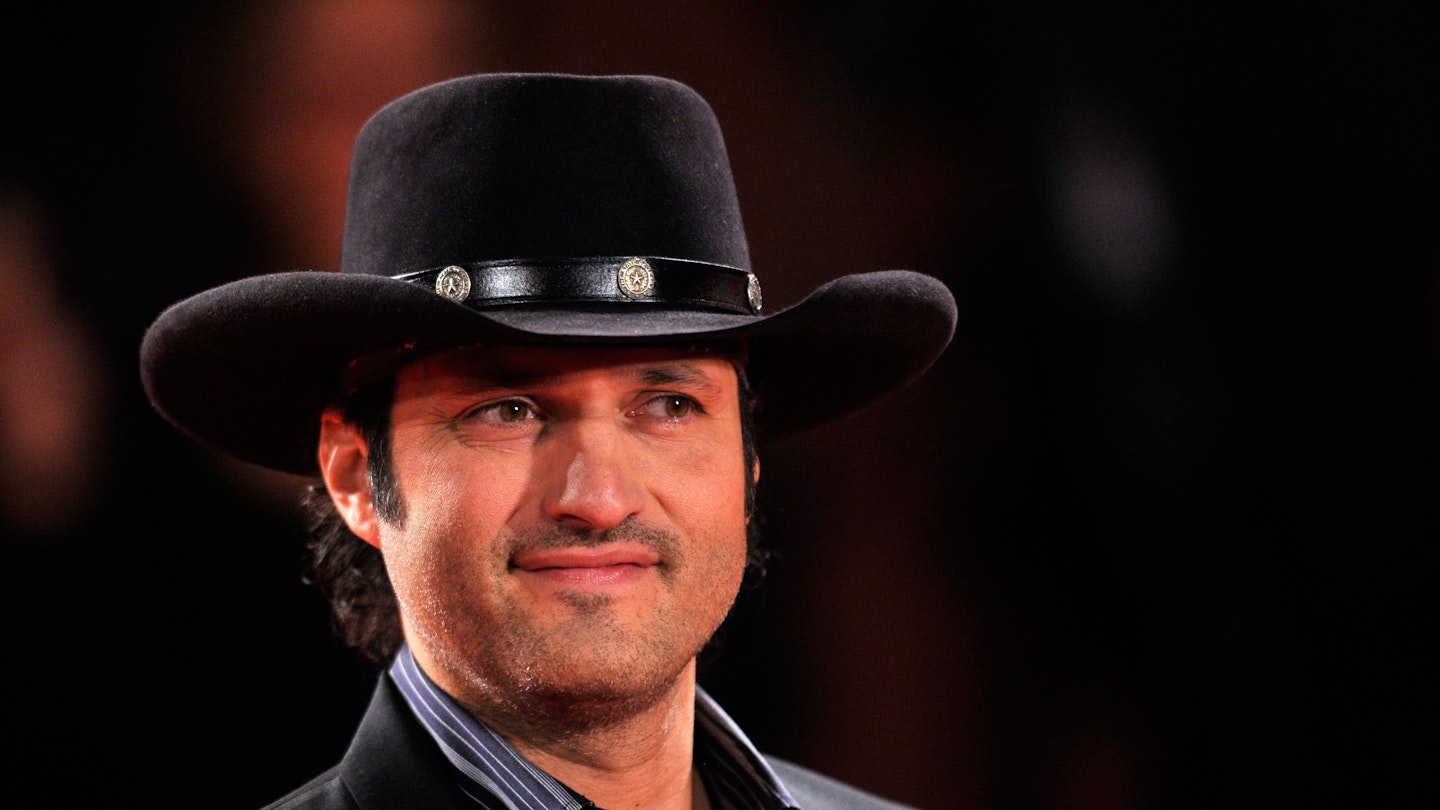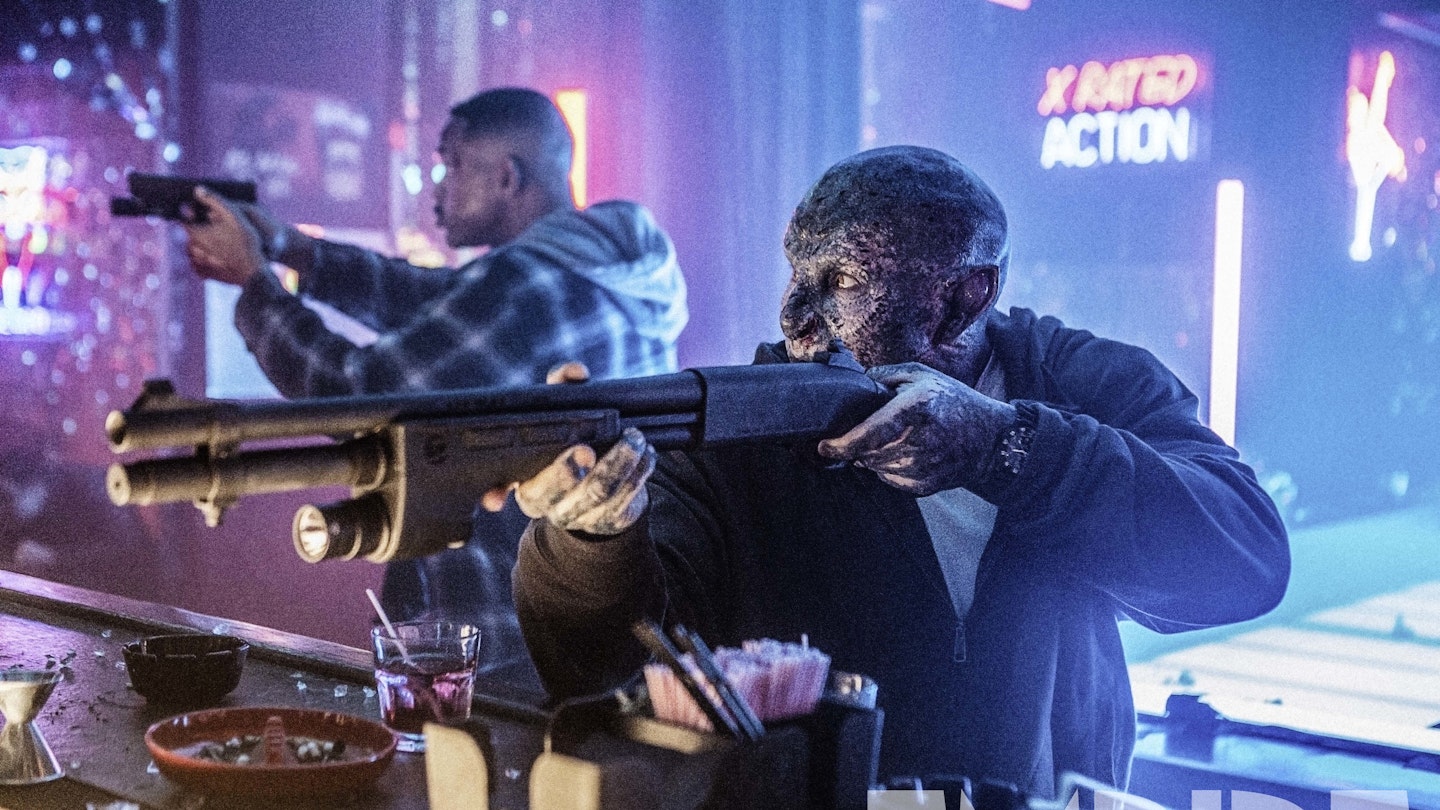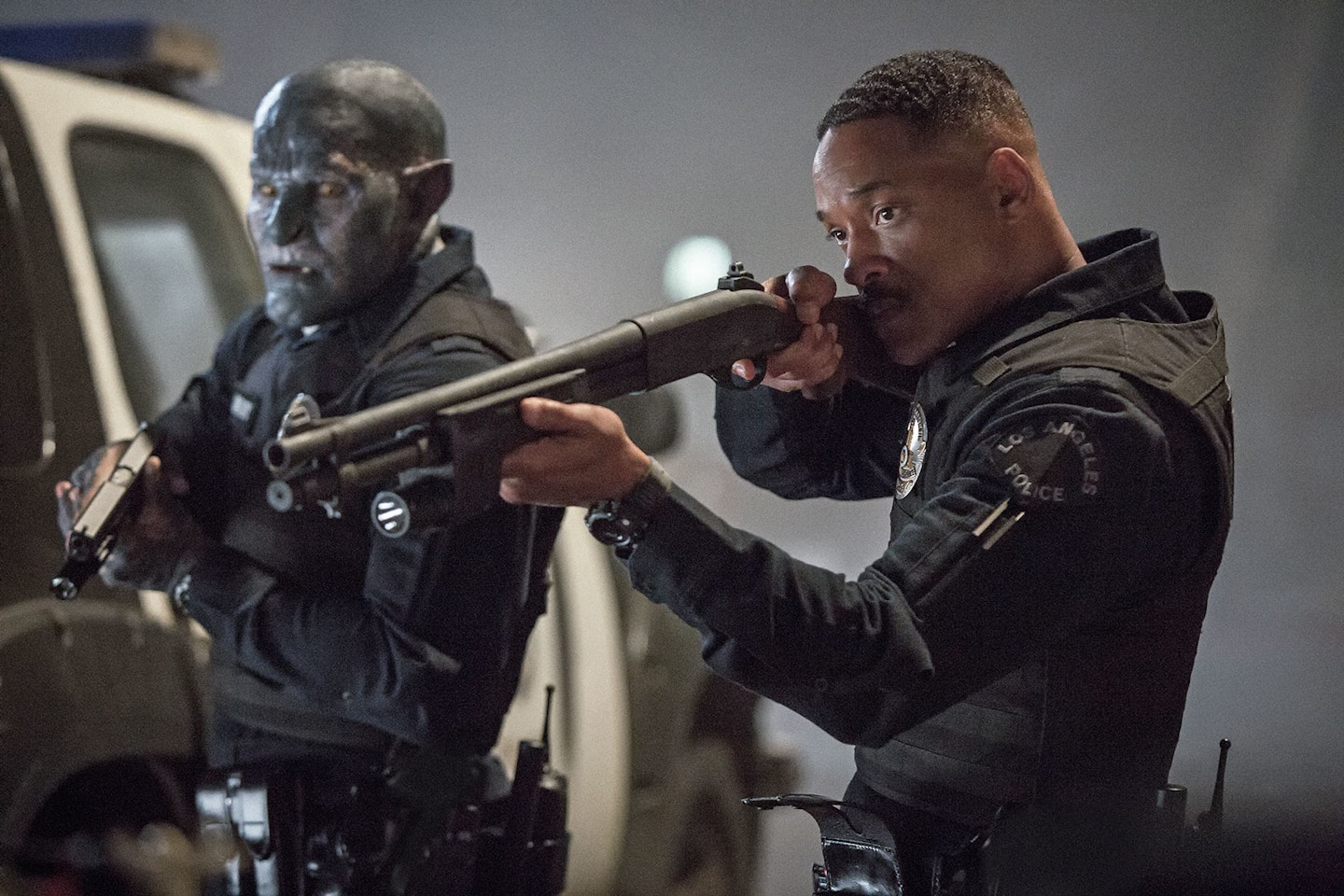
If you can imagine a world in which Peter Jackson’s The Lord Of The Rings is classed as a historical documentary, then you’re not far off the setting of David Ayer’s Bright. Two thousand years after ‘The Dark Lord’ was defeated, a menagerie of fantasy creatures co-exist in modern America. Elves swan around Rodeo Drive shopping for Gucci loafers, fairies sift through rubbish like sparkly, winged raccoons, while orcs have been relegated to a brutish underclass, still living down the millennia-old faux pas of siding with the Big Bad. It’s a superb conceit that draws on Tolkien lore, throws in a dash of ’90s RPG property Shadowrun and acts as a mirror for the racial divisions of modern-day America.
At least that’s the idea. The execution, unfortunately, doesn’t live up to the premise. From bigoted cops to slimy IA suits and supercilious feds, the characters are drawn with strokes broader than a cave troll’s buttocks. Even Smith, one of the most effortlessly charming actors alive, is reduced to a growling, surly flatfoot, barely concealing his resentment at a partner foisted upon him by the department’s diversity initiative.
There are sparks of solid action, but Max Landis' script contains too much stilted dialogue to properly ignite.
The racial subtext itself would have more potency if the fantasy factions weren’t so stereotypical themselves. Snooty elves are portrayed as the social elite, while orcs are thrash-metal-loving street thugs who sneer at any who remain ‘unblooded’ — a barely explored ritual that seems to sub for an orcish bar mitzvah. The broader fantasy setting is squandered, too, with a centaur traffic warden and the silhouette of a lone dragon flapping across the Angeleno skyline that only hints at a deeper mythology. Parallels to modern prejudices are still felt, but it’s hard not to feel this was all achieved more artfully by Alien Nation back in 1988.
The story is similarly undeveloped. Magic users (‘brights’) are regulated by federal law and magic wands treated as eldritch WMDs. So when Jakoby and Ward stumble upon one such glowing MacGuffin, we’re pulled into a street-level pursuit movie, scrambling from venue to venue while dodging fire from a potion of Latin gangsters, an orcish death cult and Rapace’s band of ninja elves. There are sparks of solid action amidst the confusion, but Max Landis’ script contains too much stilted dialogue to properly ignite.
Coming after Suicide Squad, this isn’t the David Ayer return to form we’d hoped for. Neither is it the big win Netflix wanted, having dropped $90 million on the project and won a bidding war with Sony and Warner to prove that blockbusters are no longer the domain of cinemas. Netflix may indeed prove that streaming is the future, but that future isn’t Bright.
